This week writer and former Sapling co-editor Thalia Kehoe Rowden has some thoughts about a number of books that could do with better rhyme and rhythm, but is delighted with one new title.
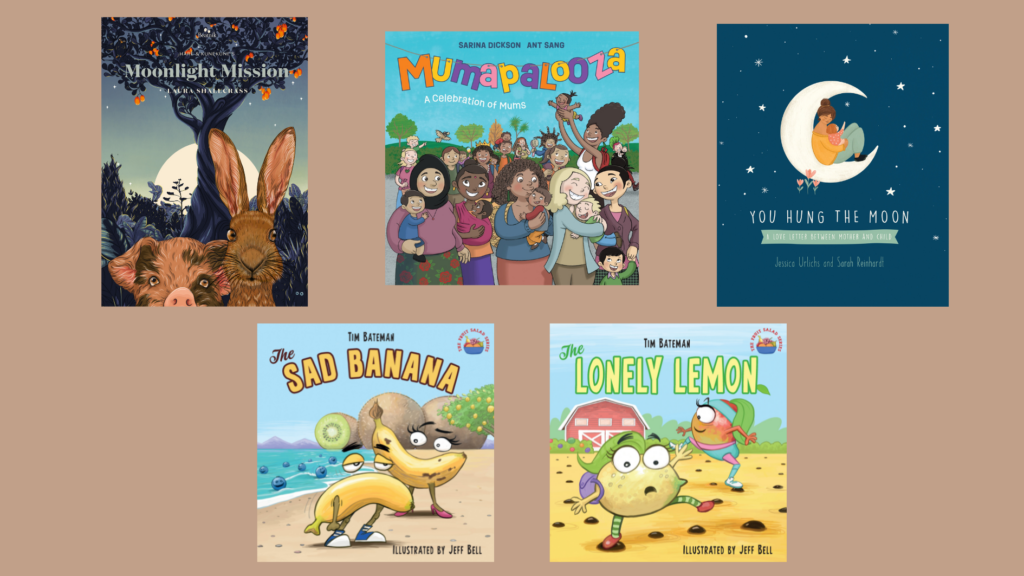
In a country that has produced such world-class rhymers as Juliette MacIver and Lynley Dodd, it can be tempting for all picture book writers to think they have to write in rhyme.
Please don’t! It’s harder than it looks – truly – and far too often, a self-imposed rhyme scheme becomes a cage that distorts good ideas and stunts storytelling.
This is such a common problem that the Storylines picture book awards application form cautions against it! Here is their advice:
“If you are intending to submit a picture book text for the Storylines Joy Cowley Award, Storylines strongly advises that you write it in prose, and put aside ambitions to write in rhymed verse. “Rhyme is difficult,” Joy Cowley says in her how-to book Writing from the Heart, “and must be done well. It needs natural language and rhythm, and must scan.”
Many of the texts submitted for the award in recent years have been in rhyming verse, but have not met Joy’s criteria. Each year the judges report their disappointment that good ideas are spoiled by imperfect, hard-to-read verse, rather than simple, clear prose.
You can read further advice from Joy on this topic here.”
In this month’s set of reviews, I’ll start with a lovely book, wisely written in prose, which shows how an original, quirky story can be told in simple, spare words, before turning to one new rhymer that needed more work, and four new titles with something to offer, but which simply shouldn’t have been told in rhyme at all.
Hare & Kunekune’s Moonlight Mission, by Laura Shallcrass
Poetic and dreamy, but propelled forward by a mystery, Moonlight Mission is an unusual story. Kunekune and Hare are worried about fruit going missing. Is someone stealing it? How will they catch them?
Beneath the peach tree
Kunekune was dreaming about flying.
Hare was dreaming of food.
Because each night,
a little more was going missing.
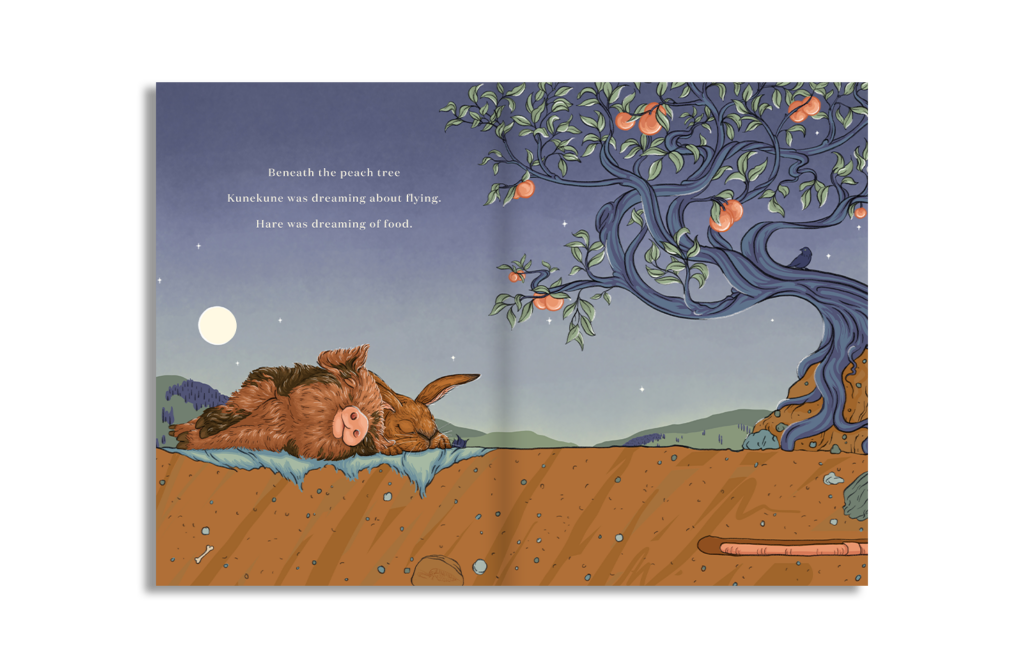
Queenstown writer and illustrator Laura Shallcrass, and the team at Beatnik Publishing, have produced a lush, artistic book that is lovely to immerse yourself in. Produced in rich matte tones of blue and peach, each page is new and a little unexpected.
Kunekune and Hare quiz their animal friends without much success, until they find, with surprise, that the food isn’t being stolen, but redistributed to those in need. The mystery becomes a morality tale, but it’s done with such a unique voice that it’s fresh, and quite affecting.
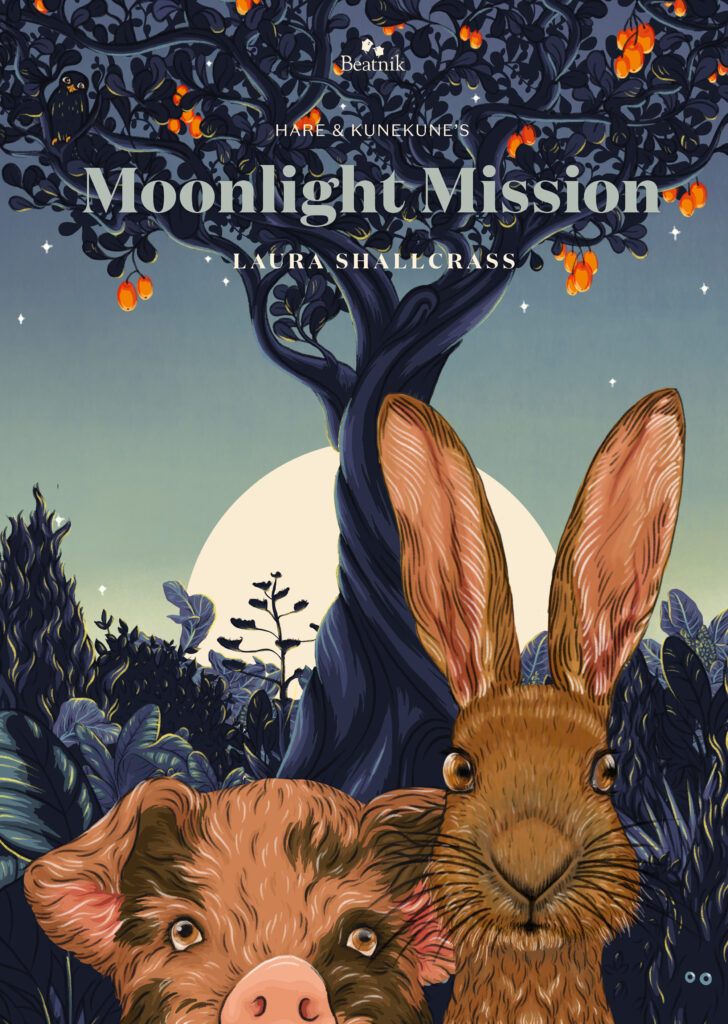
Hare & Kunekune’s Moonlight Mission
By Laura Shallcress
Published by Beatnik Publishing
RRP: $30.00
Mumapalooza, by Sarina Dickson, illustrated by Ant Sang
This celebration of a million ways of being a mum will bring joy, lead to good conversations, and absorb littlies in matching up the text to the pictures – you’re not going to be able to turn the pages quickly, because they’ll be busy spotting every last mum that’s mentioned in the text!
Equity and bias reviewer Elaine Su recently pointed out the lack of fat bodies in children’s books. One thing Mumapalooza does well is represent nearly everybody’s body. There is a range of body shapes and sizes, as well as skin colours. A few different kinds of cultural dress are shown, and there are, for instance, at least three hijabi mums in the pictures, as well as a mention in the text itself. I didn’t spot any obviously disabled mums (apart from one wearing a moon boot and using crutches, which seemed temporary). Appropriately for the under-fives audience, these are all mums of babies and little kids, with lots of baby-wearing and a memorable depiction of breastfeeding. There are no dads in sight, but at least one pair of mums, and some grandmas.
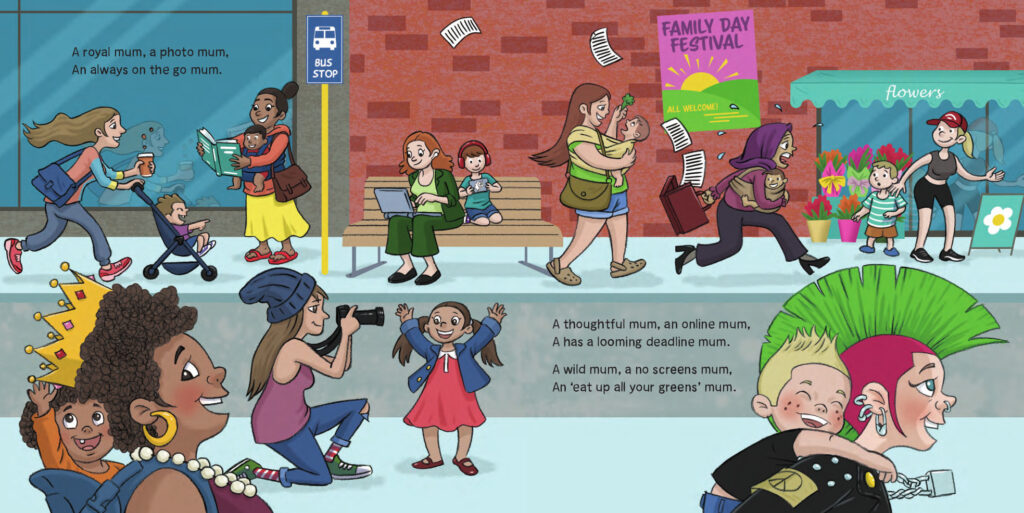
The rhyming and scansion aren’t perfect, making it less pleasurable to read aloud than it could have been with a bit more polishing. I wasn’t totally sold on all the ‘kinds’ of mum;, and especially with the number of lines that were about mums nagging or being a bit frazzled – it’s not unrealistic, but they sometimes felt like convenient inclusions to pad out the rhyme scheme, rather than deliberate choices. Are these really the exact mums we want to show? Here’s the text from the first two spreads to give you an idea:
A quick mum, an ace mum,
A nothing out of place mum.
A fun mum, a fit mum,
A ‘tell me all about it’ mum.
A sweet mum, a mentor mum,
An ‘I wish I saw you more’ mum.
A chic mum, a brave mum,
A ‘will you please behave’ mum.
A learning mum, a cross mum,
A ‘you are not the boss’ mum.
On the plus side, when combined with the very literal illustrations, having a long list of mums to spot does make for an engaging, interactive experience for little ones.
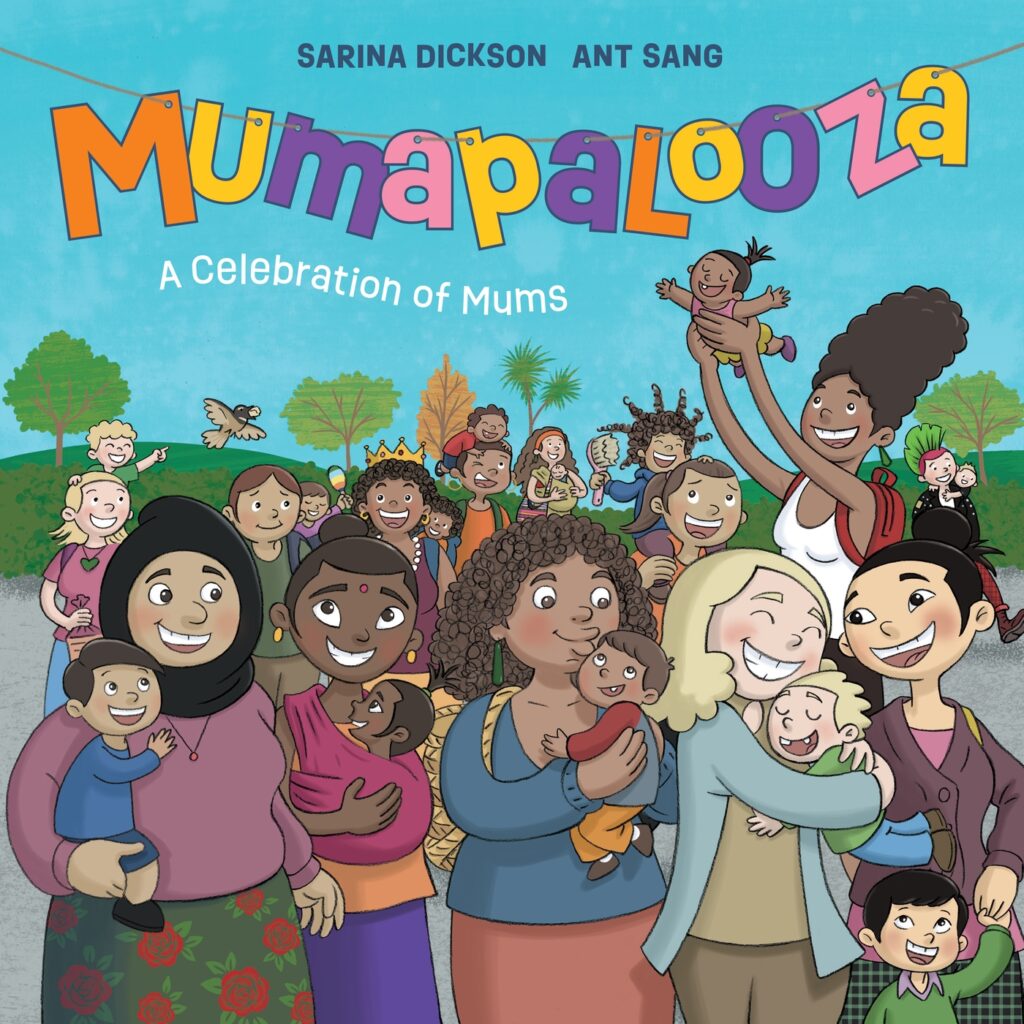
Mumapalooza
Written by Sarina Dickson
Illustrated by Ant Sang
Published by Hachette
RRP: $19.99
The Lonely Lemon and The Sad Banana, by Tim Bateman, illustrated by Jeff Bell
These two books are part of a new ‘Fruit Salad’ series, which aims to support children’s mental health with stories of developing resilience.
Bowie the Banana is grumpy about everything and not interested in cheering up. Lulu the Lemon is worried about trying new things. The adults around them help them find inner resources to take on the world.
These are important aims and children certainly need more books helping them navigate their big feelings and develop healthy habits. These are not very successful picture books, however, and should have had another few rounds of edits and shaping to make the most of them.
They’re both told in rhyming text that doesn’t rhyme or scan well, and the arc of each story needs some refining. I found the fruit theme something of a distraction, but my eight-year-old was tickled by it. The visual design could be improved, too – the text is a plain, heavy, black font that drags the mood down, and there isn’t enough variation in the layout and perspective from page to page.
I found the illustrations of the characters a bit off-putting. Bowie is a frown-shaped banana with grouchy eyes hovering above, and legs and sneakers below. His mum is a banana with long eyelashes and pink high heels – surely in 2023 we don’t need to signal gender like this?
The messaging in both books is sometimes heavy-handed, and sometimes a bit vague and hard to understand. My eight-year-old enjoyed the humour in the books; it would be great to see the next ones in the series show the input of a bit more editing, and perhaps some additional production expertise.
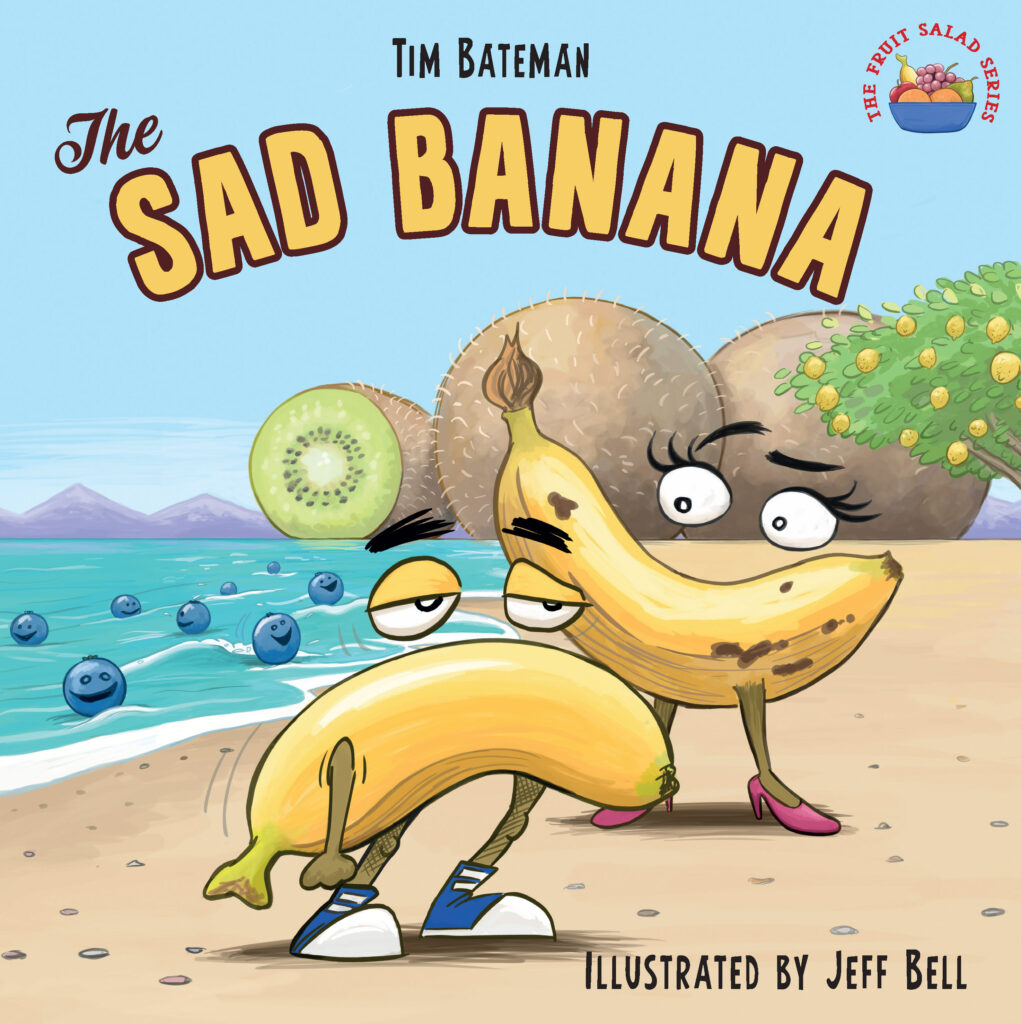
The Sad Banana
Written by Tim Bateman
Illustrated by Jeff Bell
Published by Bateman
RRP: $21.99
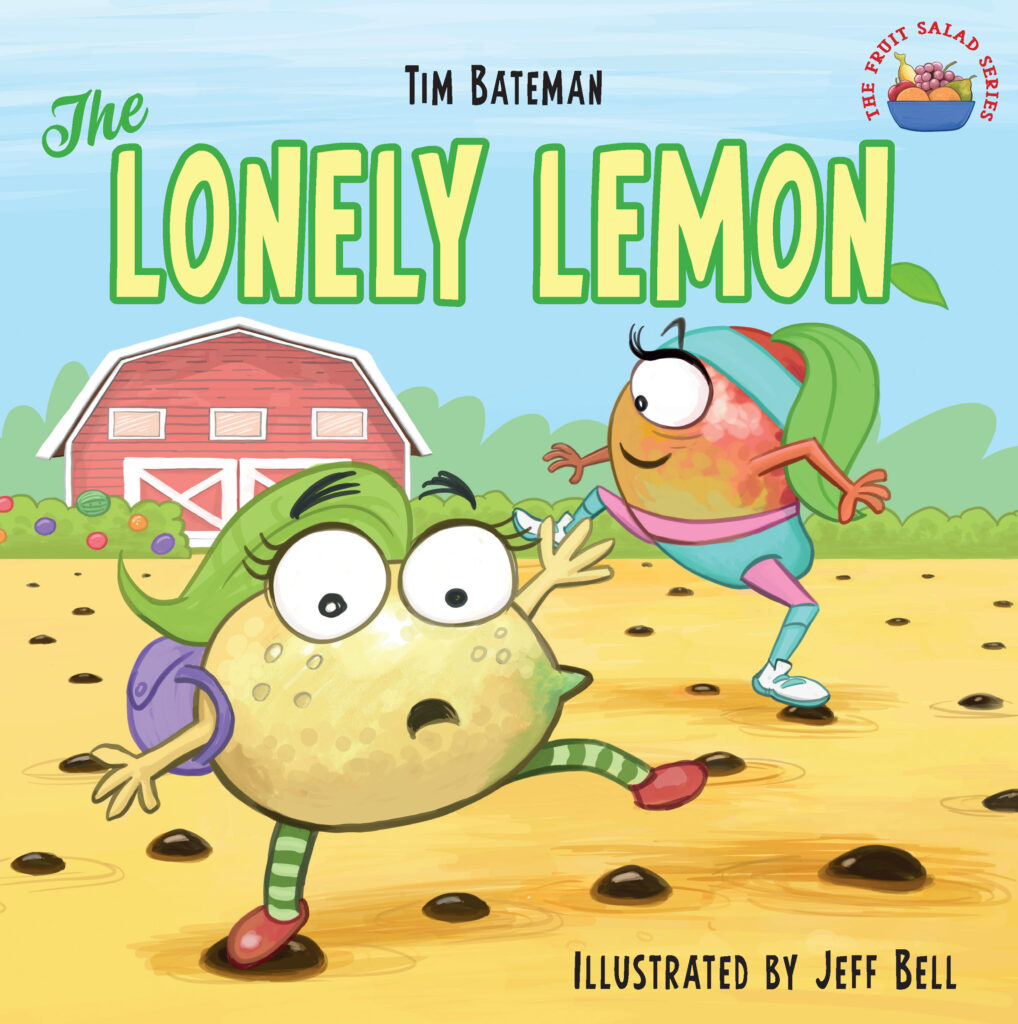
The Lonely Lemon
Written by Tim Bateman
Illustrated by Jeff Bell
Published by Bateman
RRP: $21.99
You Hung the Moon: a love letter between mother and child, by Jessica Urlichs, illustrated by Sarah Reinhardt
It’s hard to know quite what this book is or who it is for. The voice is that of the child – from baby to adult – telling the mother about their relationship, aimed at encouraging mothers in their roles. But it’s told in the kind of simple rhyming that seems more like a picture book to be read to a child. Ultimately this feels like a mismatch, and a lost opportunity to commit to one or the other.
Sarah Reinhardt’s illustrations are charming and world-class. They also depict a wide range of families with more skill and subtlety than most books that prioritise diversity.
Each spread has a rhyming couplet from Jessica Urlichs, portraying a different aspect of the mother-child relationship, over the lifespan. There are some profound ideas in here, supported by the very moving illustrations, but the rhyming text tends to make them seem twee and insipid. Here’s one of the best:
You’re my whole world.
You’re everything to me.
You shine like the stars.
You’re all that I see.
The idea that babies are entranced by their mothers, that their mums dominate their world, is a fascinating one to explore and make fresh. It would be much stronger if the author hadn’t bound herself to rhyming.
On the very next page, the rhyme scheme is even more constricting:
Whatever we do,
Whatever we’re seeing,
As long as we’re together,
With you I love being.
To invert ‘I love being with you’ to ‘With you I love being’ might be a poetic choice to bring out the ambiguity of being/existing – but the forced rhyme overshadows the interesting thought entirely.
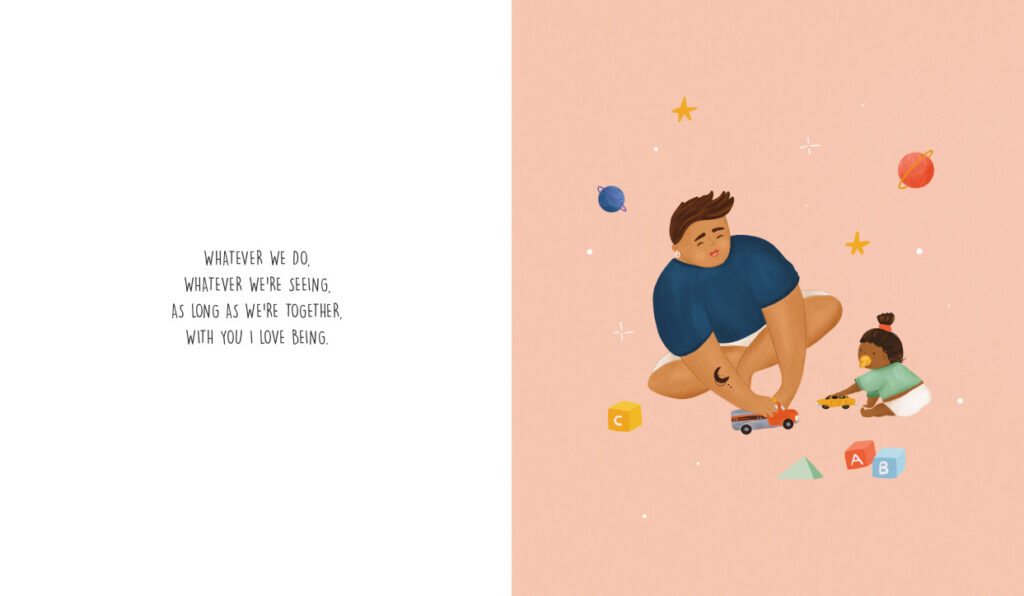
I was reminded throughout of the classic Love You Forever by Robert Munsch, which shows the love of a mother for her son throughout life, in the form of a child-centred picture book, and is told in prose, but with a recurring structure from page to page. It’s a masterclass in how to aim a text at both children and adults in the same book – another thing that’s harder than it looks.
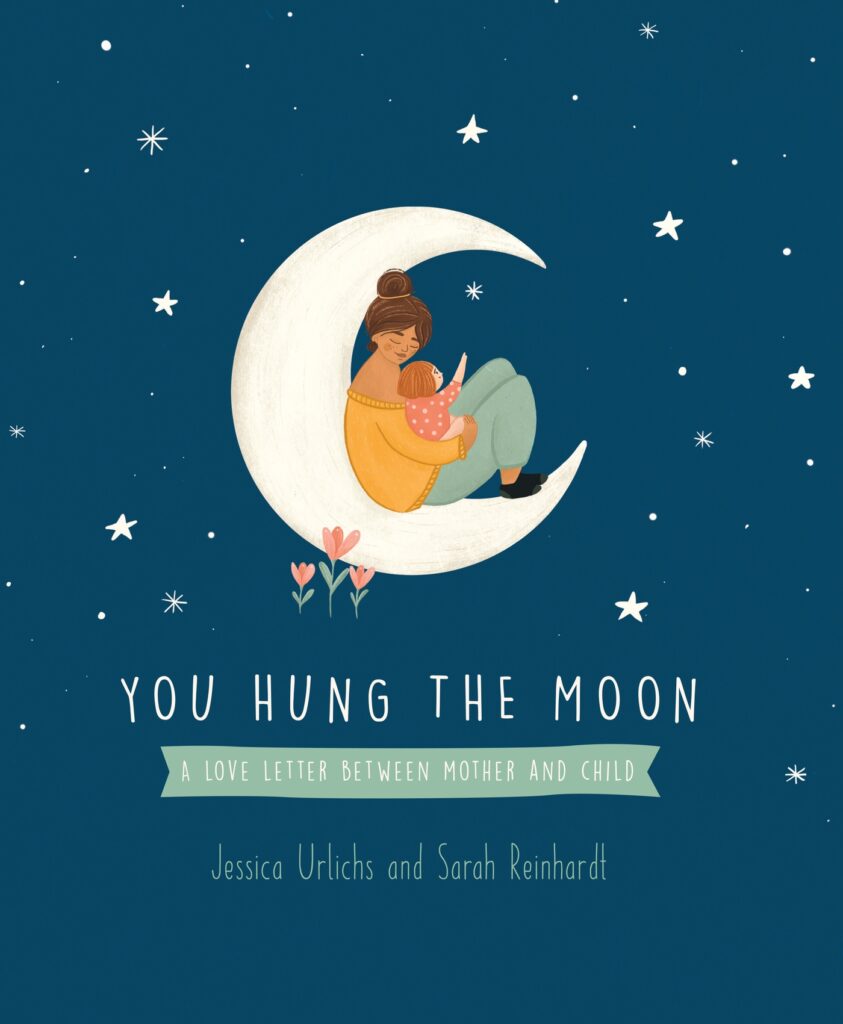

Thalia Kehoe Rowden
Thalia Kehoe Rowden is a former co-editor of The Sapling, and a Wellington writer and human rights worker. She is passing on a family inheritance of book dependency to her two small children, and is delighted to be part of The Sapling, as it gives her even more excuses to read excellent children's books. You can follow her on Twitter, Facebook, and at her parenting, spirituality and social justice website, Sacraparental.



